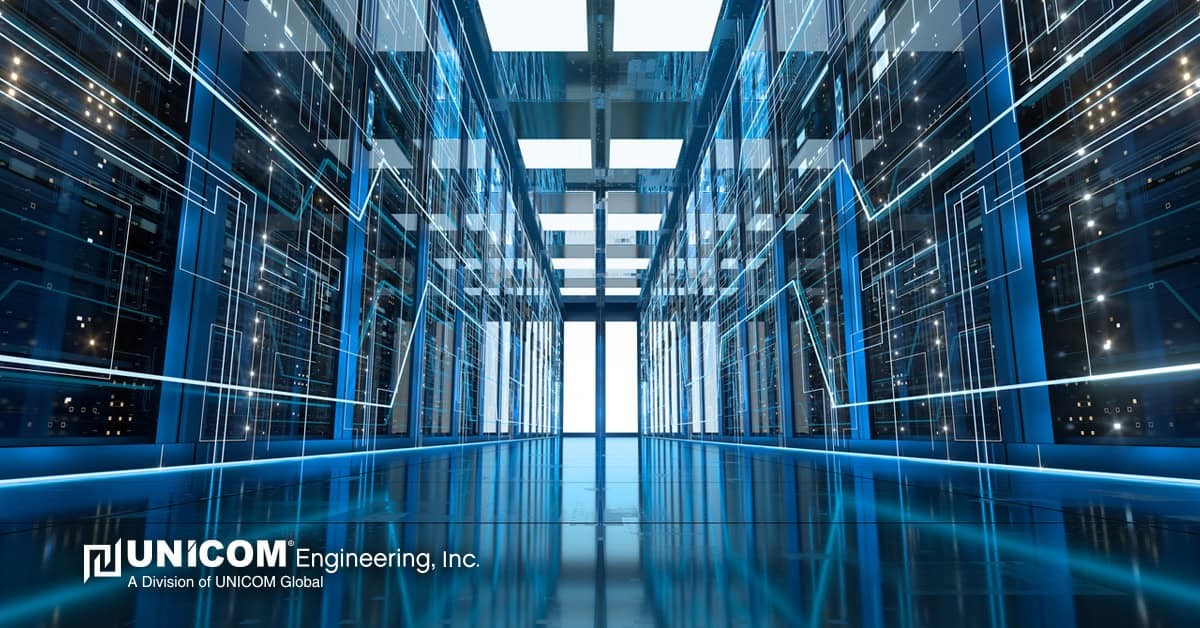With ever-increasing complexity and continuous processing demands, AI is redefining the role of the data center. At the same time, however, its growth faces the potential brick wall of heat production. Fortunately, Dell Technologies’ Smart Cooling solutions, coupled with UNICOM Engineering’s expertise, offer a variety of cooling solutions.
The Cooling Demands of AI
As AI grows in power, the need for cooling has closely followed. In fact, any conversation about AI and its supporting hardware is not complete without careful consideration of what to do with the resulting heat. Reasons for this include:
-
Increased computational needs — As AI models grow in complexity, they require more calculations than ever.
-
Continuous workloads — Unlike traditional data center operations, which often have fluctuating workloads, AI workloads can be more constant and sustained, especially when training large models. The need for continuous processing to manage AI training or inference can result in a consistent generation of heat over longer periods, putting more strain on the cooling systems.
-
Smaller, denser hardware configurations—AI applications often rely on specialized hardware, like GPUs and AI accelerators, which are packed into dense configurations. The more compact and concentrated the hardware, the harder it is to cool. Traditional cooling methods, like air conditioning, may struggle to distribute cool air effectively in such dense setups.
The Constraints of Traditional Cooling
However, growing AI demands are hitting the wall of limited organizational resources. Thus, even the brightest, best-laid AI plans must account for a variety of obstacles, including:
-
Energy consumption—As AI models become increasingly complex, they require more powerful processors like GPUs and CPUs. Because data is stored and processed in the form of electricity, the greater the processing, the greater the heat.
-
Physical space limitations—Most organizations have a limited amount of square footage they can devote to data centers, so they must make do with what they have. This means more computing resources must somehow operate in a finite space.
-
Environmental concerns—Traditional air cooling requires organizations to devote significant amounts of energy to cooling alone, a process that increases their carbon footprint while requiring more space.
-
Thermal throttling and hardware efficiency — When their cooling system is subpar, GPUs and CPUs can be forced to throttle performance to prevent damage. This process only delays the need for more processing.
Dell Technologies’ Smart Cooling and Other Strategies
Fortunately, Dell Technologies is no stranger to data center cooling and how its need continues to grow. For decades, they’ve developed cooling technologies to enable their hardware innovations and have partnered with other hardware experts to engineer and deliver them. The Dell Technologies' Smart Cooling suite encompasses a range of strategies to overcome the cooling challenges of AI, including:
Direct Liquid Cooling (DLC)
Dell Technologies offers Direct Liquid Cooling (DLC) for environments with higher thermal demands. This method involves attaching cold plates directly to processors, with coolant absorbing and removing heat via a heat exchanger. DLC is particularly effective in dense data center settings, efficiently managing heat from high-performance components.
Air Cooling Innovations
For certain installations, air cooling remains viable. Dell Technologies’ strategy employs sophisticated algorithms, thermal sensors, and optimized airflow components to maintain optimal server temperatures. The Multi-Vector Cooling (MVC) system intelligently directs airflow to critical components, enhancing cooling efficiency. This design extends the viability of air-cooled data centers, reducing the need for extensive infrastructure modifications.
Smart Power Management
Complementing its cooling technologies, Dell Technologies integrates smart power management tools. The Dell Technologies’ OpenManage Enterprise Power Manager plugin enables centralized control over power usage, optimizing energy consumption and reducing operational costs.
Single Phase Immersion Cooling
As an award-winning OEM partner of Dell Technologies, UNICOM Engineering can extend Dell Smart Cooling even further with solutions like immersion cooling. For high-performance, high-density computing deployments, entire servers are immersed in fluid to absorb and dissipate heat as efficiently as possible. With single-phase installations, the resulting heat is processed via a heat exchanger.
Two-Phase Immersion Cooling
To cool the hottest compute environments, Dell Technologies partners with UNICOM Engineering to offer two-phase immersion cooling. In two-phase configurations, the removed heat is dissipated via a water tank, thereby providing the densest, most energy-efficient cooling option. In these scenarios, organizations often find innovative ways to harness the heat for their facilities.
UNICOM Engineering's Liquid Cooling Solutions
UNICOM Engineering delivers specialized liquid cooling solutions that complement Dell's Smart Cooling portfolio. Our approach combines customized implementation with cutting-edge hardware designed specifically for immersion environments.
The XE9680-IR immersion-ready server showcases our cooling expertise. This purpose-built platform supports up to 8 NVIDIA H100 GPUs and dual 4th Gen Intel Xeon processors, delivering exceptional AI performance while fully optimizing for liquid cooling environments. With specially designed connectors, modified component layouts, and enhanced thermal interfaces, the XE9680-IR maximizes heat transfer efficiency when submerged.
Our implementation team handles the entire process—from initial assessment through installation and validation—ensuring seamless integration with your existing infrastructure. We also design sustainable closed-loop systems that can repurpose waste heat, reducing environmental impact and operating costs.
Keep Your AI Initiatives Cool with Dell Technologies and UNICOM Engineering
Whether you need help with immersion cooling deployment, custom engineering, full lifecycle support, or all the above, we have the experience to guide you through every step. Ready to take your AI solution to the next level? Visit our liquid cooling page to schedule a consultation, and let's discuss how we can accelerate your path to success.
